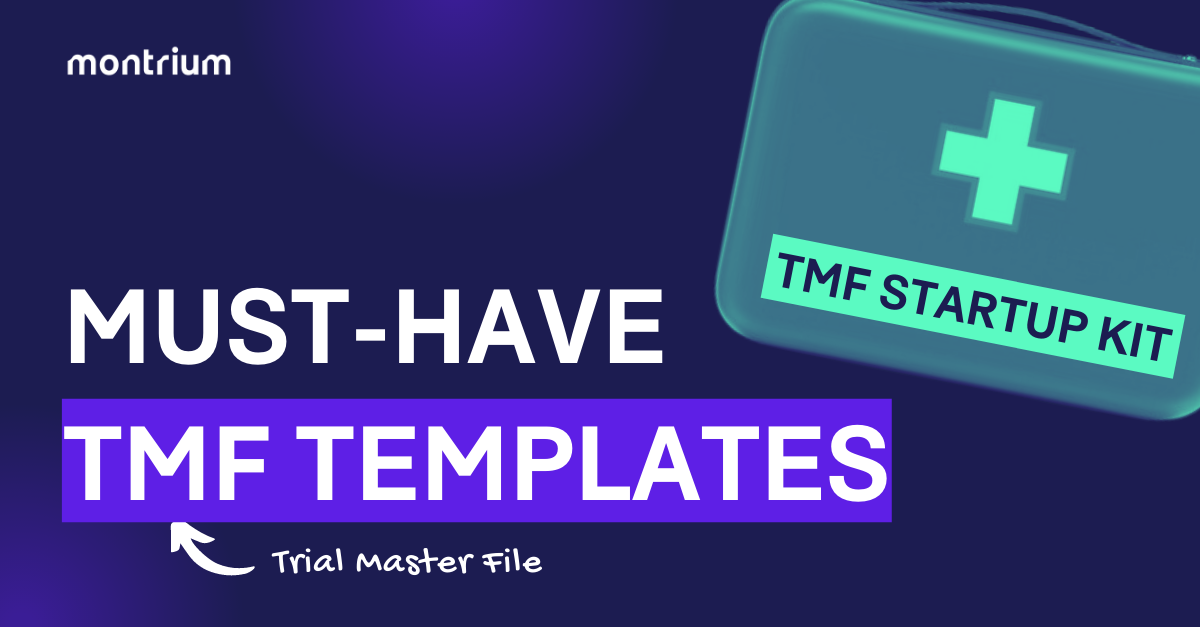
“An acronym in the life sciences industry? That’s unheard of,” said nobody ever. Indeed, our industry is full of acronyms, yet not all are built equally. ALCOA+ is one you need to remember.
Guaranteeing the integrity of the data we collect is crucial to ensuring that our data-based systems are functioning smoothly and accurately. In the biotech and pharma industries, it’s not only a matter of convenience, but also one of safety. Data must be accurate in order to understand the context and consequences that our actions have on patient health.
That’s where ALCOA comes in. It’s a handy acronym developed by the U.S. Food and Drug Administration to summarize the elements necessary to maintain data integrity and align with regulatory requirements. Now referred to as “ALCOA+”, it serves as a guiding principle in Good Documentation Practices (GDP) and Good Manufacturing Practices (GMP). It's sort of like the BEDMAS/PEMDAS of the trial master file (TMF).
Below, we’ll discuss what ALCOA stands for (and where the “+” came from), ALCOA principles in clinical trials, and how you can simplify the process of ensuring ALCOA+ data integrity for the TMF.
What does ALCOA stand for?
In order to be certain that we’re properly maintaining ALCOA+ data integrity for the TMF, we first need to have a solid understanding of what ALCOA means. The letters of ALCOA each stand for a specific principle: attributable, legible, contemporaneous, original, and accurate.
Attributable
Where did the data come from? For data to be attributable, we need to know where, when, and from whom it originated. We need to be able to trace the data back to the person who generated it and see when those actions occurred.
Legible
Legibility refers to how easily people can read and understand the data. For paper-based systems, this one is pretty obvious: try to make sure documents aren’t filled out in messy, hard-to-read chicken scratch. However, electronic system users still need to worry about legibility, too. It entails taking measures to ensure that the context of the information can be understood alongside the information itself, meaning that records must be comprehensible for audit trail entries. eTMF systems, like Montrium’s eTMF Connect, not only remove the need for hand cramping as you try to perfect your writing, but also facilitate the creation of audit trails.
Contemporaneous
Would you trust a story told by someone who had just experienced it, or someone who experienced it 10 years ago? Probably the former option. This is why ALCOA prescribes that data be contemporaneous, meaning that it is recorded at the same time the action takes place. Not only does this reinforce the accuracy of the data, but also generates a timestamp that it can be traced back to.
Original
Data should be recorded directly and not from a secondary source. In the event that a copy of the data is created, it should be clear and easy to distinguish which one is the original document and which one is the copy. Copies of data should also be formally certified to guarantee that they are true to the original.
Accurate
While the term “accurate” can be a bit vague or nebulous, it pretty much just means that data should be correct and precise. That is to say, the sources of the data should be controlled and verifiable. To keep data accurate, you should rely on GDP, audit trail entries, and ensure that data can’t be altered incorrectly.
But wait... there’s more! ALCOA+
What about the “+” in ALCOA+? Well, there have been four new elements added in the 2010s which are represented by the plus sign. They hold that data should be:
- Complete: This one is pretty self-explanatory—all data should be present! Selectively choosing which data to report is equivalent to falsifying it.
- Consistent: The records should be sequential and organized in a coherent way based on their date and timestamps. The timestamps themselves should also be consistent and accurate.
- Enduring: Data should only be recorded in authorized formats. For printers, this means that thermal paper may not be used. For electronic users, CDs, DVDs, and USBs sticks are not considered to be compliant with GxP in this regard.
- Available: The data should be accessible for review and auditing for the entirety of the record’s lifecycle. The data must be recorded in controlled formats that allow for accessibility for as long as is required by regulations.
ALCOA principles in clinical trials
ALCOA principles in clinical trials are there to guarantee the reliability of the results of clinical trials, and by extension, patient safety. These principles touch upon and influence data collection across all different areas of clinical operations, whether it be collecting subject data or authoring site monitoring visitor reports. One of the key areas in which ALCOA principles play a role—and one which we happen to know a little something about—is that of data integrity for the TMF.
ALCOA+ data integrity for the TMF
A TMF is by nature a collection of data, and one for which data integrity must be ensured so as to guarantee a true, verifiable record of what took place throughout the trial. ALCOA+ is the gold standard for clinical operations and documentation professionals when it comes to data integrity for the TMF. Not only is ALCOA+ necessary for data that are captured in the TMF, but also for data that aren’t captured, such as with notes to file.
One of the easiest ways to facilitate compliance with ALCOA+ within the TMF is by using an eTMF system, which helps to ease the burden of many of the principles. For instance, you don’t have to worry so much about whether or not your writing is legible if everything is contained in typed, electronic documents. These systems, like Montrium’s eTMF Connect, also make adhering to elements of ALCOA+ like enduring and available by storing data in a validated system which can provide remote accessibility to authorized persons anywhere in the world.
ALCOA: Key takeaways
Let’s review what we’ve learned:
- ALCOA was coined by the U.S. Food and Drug Administration and serves as a guiding principle of GDP and GMP.
- ALCOA+ stands for attributable, legible, contemporaneous, original, accurate, complete, consistent, enduring, and available—phew, that’s a lot!
- ALCOA+ is all about ensuring data integrity and guaranteeing that the information you collect is accurate and traceable.
- Data integrity is important for clinical trials in that it helps to make sure that the results are reliable, thus protecting patient health.
- An eTMF system facilitates compliance with ALCOA+ elements through the creation of audit trail entries, storage of data in a validated system, and more.







.png)




.png)



